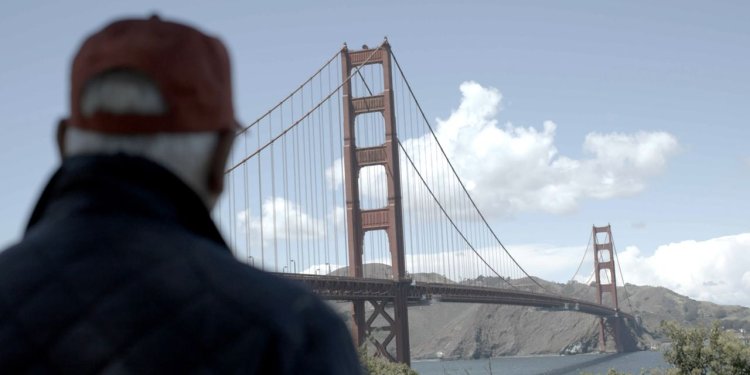‘Iconic America: The Golden Gate Bridge’ Review: A Soaring Symbol
The final episode of the PBS series hosted by David Rubenstein examines the significance of San Francisco’s emblematic span, so different from America’s current state of infrastructural malaise. A view of the Golden Gate Bridge Photo: Show of Force By John Anderson July 27, 2023 5:29 pm ET ‘We are connected by our national symbols. We are also connected, quite literally, by our infrastructure,” our host tells us at the beginning of episode 8 of “Iconic America: Our Symbols and Stories With David Rubenstein. ” Sometimes, he adds, they are one and the same. Iconic America: The Golden Gate Bridge Tuesday, 10 p.m., PBS


A view of the Golden Gate Bridge
Photo: Show of Force
‘We are connected by our national symbols. We are also connected, quite literally, by our infrastructure,” our host tells us at the beginning of episode 8 of “Iconic America: Our Symbols and Stories With David Rubenstein. ” Sometimes, he adds, they are one and the same.
Iconic America: The Golden Gate Bridge
Tuesday, 10 p.m., PBS
Such is the case with the Golden Gate Bridge, the concluding subject in Mr. Rubenstein’s unusual series, which has been a biographical survey of American landmarks and/or ideas—the Cowboy, for instance, or, more concretely, Fenway Park. What makes the bridge so significant isn’t just its aesthetic beauty, or structural integrity, or the fact that it was built during the Great Depression. What it meant and still does—not just to Marin County and San Francisco, which it links, but to the entirety of the country—has to do with our national self-image, our existence as an automobile-centric society and our ability, or failure, to get big things done.
Mr. Rubenstein, a founder of the Carlyle Group among his other accomplishments, admits “I do find it slightly terrifying to walk across” the bridge, which makes sense, however inadvertent: The Golden Gate has been a suicide magnet for decades (a multimillion-dollar safety net is currently being installed) with an average of 30 or more jumpers a year. Mr. Rubenstein doesn’t get into it; his aim is to use the bridge as an inspirational off-ramp into the infrastructural malaise America finds itself in right now. Besides, that subject could be a movie all its own (and was, in “The Bridge” of 2006). Less depressing, though not by a lot, is the question that the Golden Gate poses for America today: Why is it so much harder to get such projects off the ground now than it was in the ’30s?
More Television Reviews
- ‘R.M.N.’ Review: Hatred Poisons the Mind July 27, 2023
- ‘After the Bite’ Review: Sharks in the Water, Fear in Town July 25, 2023
- ‘The Heiress and the Heist’ Review: From Debutante to Militant July 25, 2023
- ‘Son of a Critch’ Review: A Comic’s Chaotic Coming-of-Age July 20, 2023
Mr. Rubenstein and his interview subjects tell us. Neither political party wants to give the other a win; people who would have been swept aside by a power broker like Robert Moses, or the Golden Gate’s chief engineer, Joseph Strauss, can initiate litigation that lasts for years; there are environmental concerns no one would have thought about 90 years ago; and costs are astronomical. The price of the much-discussed, only partially constructed high-speed-rail line between San Francisco and Los Angeles is estimated in the show to be $76 billion. Implicit in the storytelling here is a lack of trust in government to ever accomplish anything so ambitious, even—or especially—with that kind of budget.
When the Golden Gate Bridge opened in 1937 it was the longest suspension bridge in the world and also the tallest—the entirety of the Brooklyn Bridge, anchorages and all, could nestle itself under the midspan of its West Coast cousin. What Mr. Rubenstein seems to wrestle with in his concluding episode—which gives ample space to both victims and proponents of large-scale developments, as well as to the perhaps unsustainable nature of a car culture that the Golden Gate Bridge virtually sanctifies—is national will. Do we have one? The construction of a Golden Gate Bridge—or a Hoover Dam, or a Panama Canal, or a transcontinental railroad—requires sacrifices. Mr. Rubenstein would be made very happy if his inquiries suggested Americans were willing to make some.
—Mr. Anderson is the Journal’s TV critic.
What's Your Reaction?













